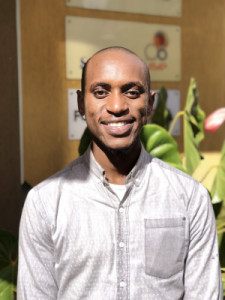Self Help Podcast Narration (African Accent)
Description
Vocal Characteristics
Language
EnglishVoice Age
Middle Aged (35-54)Accents
African (General) East African (General) South African (General)Transcript
Note: Transcripts are generated using speech recognition software and may contain errors.
Good morning. And welcome back today, we are going to start to get rid of any bad mental, physical and emotional habits that are stopping you from being the best you can be often. What stops us from achieving are our very own thoughts and actions. What is a habit? I like this simple definition of a habit. Habits are what we do when we don't think a habit is any action that we've performed so often that it becomes almost an involuntary response. It's an automatic default to a trigger, which could be a thought feeling or situation, identifying your triggers is therefore another key step in the process of changing your habits. This means that our habits can happen as easily and as regularly as our breathing occurs automatically and on target every time they just happen or that's what it feels like without us having to think about them, many of our habits form early in our lives and we never really examine them. We learn to act and react in certain ways modeled and taught to us by the people that we observe and learn from our parents, caretakers and other significant people in our lives. Through repetition and exposure to the positive or negative consequences of our actions and the reinforcement thereof. We acquire behavioral patterns, skills and habits that become our automatic or default behaviors in situations. These behavioral patterns exist as neural pathways in our nervous systems which become stronger and wider with repeated use. The more times a neural pathway is used, the easier and faster it will conduct an impulse along that same path, which explains why our reactions to certain triggers happen so quickly and automatically. Without us having to think about them. Over time, the brain coats these frequently used pathways with a myelin sheath which makes them even stronger and more resistant to change. In this way, our brain circuitry gets hardwired to produce automatic thoughts or behaviors. And of course, the results that these behaviors bring furthermore when we really enjoy something, the brain's reward centers are triggered and a chemical called dopamine is released, this makes us feel really good. And over time, we learn to crave this feeling, our tendency to value an immediate reward more than delayed results exacerbates the problem we want to feel good now and therefore we give in to whatever produces pleasure in the moment. Habits are a normal part of our lives and often very helpful. The majority of our behaviors become automatic over time. Think about all the things that you can do without thinking about them every morning, you get up, brush your teeth, take a shower get dressed, wash the dishes, drive to work, clean your house whilst your mind is free to focus on something else.
